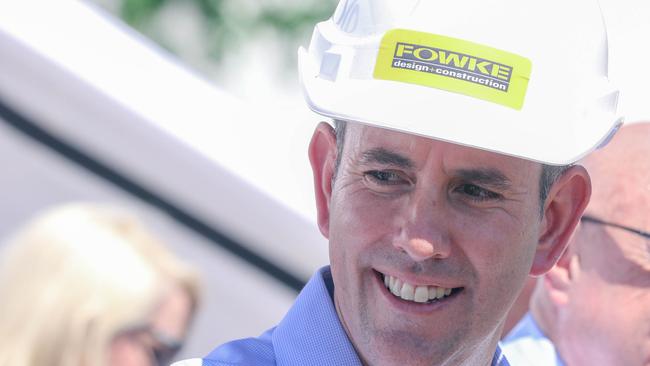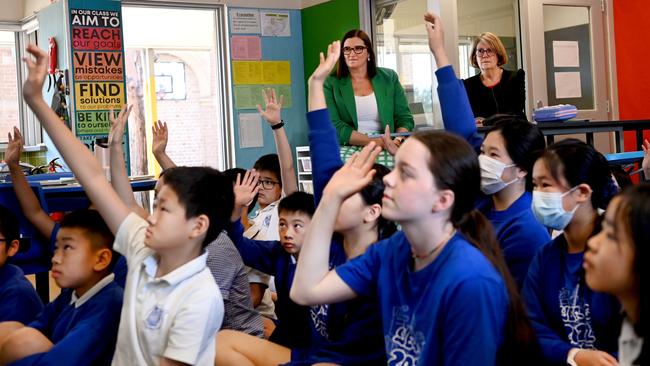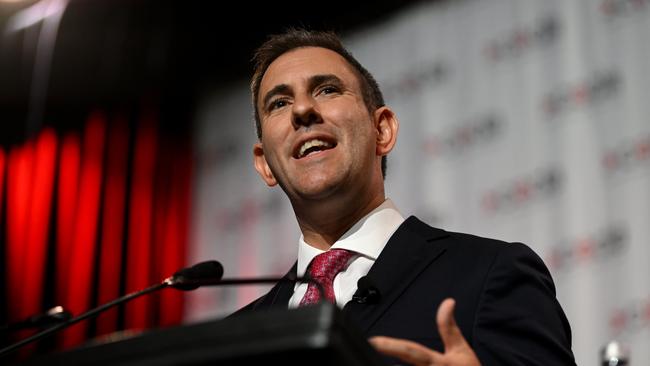Jim Chalmers says government won’t accept all Productivity Commission recommendations
The government won’t agree to all 71 recommendations in a report to be released on Friday but doesn’t want Australians working more for less money.
The Albanese government doesn’t want Australians working harder for less money despite a fall in the country’s productivity.
That’s the message from Treasurer Jim Chalmers ahead of the Productivity Commission – an independent agency that provides research and advice to the government – releasing its 71 recommendations on Friday.
The report has confirmed Australia is experiencing its lowest productivity growth level in 60 years, and while the government will commit to further action in skills, universities, information technology and migration, there is likely to be a conflict over industrial relations.
Dr Chalmers said ultimately the economy needed to be stronger, and the government was committed to acting.
“We’re moving in a number of areas the Productivity Commission will be talking about … That doesn’t mean we’ll agree with (all) 71 recommendations put forwards today,” he said.
“If we don’t strengthen our economy, if we don’t make it more productive, we don’t want Australians to have to work harder for less money.

“The primary reason we want to make our economy stronger and more productive is so that we can lift incomes and lift living standards.
“The best way to do that is to invest in people, invest in their abilities and their capacity, but also to fix the energy markets and also make sure that we are adapting and adopting technology in ways that work for us, not against us.”
The Productivity Commission makes 71 recommendations, many which include federal and state governments, in its final report from its five-year Productivity Inquiry.
It identifies services industries as the biggest challenge “if Australia is to continue to grow its economy and increase individual prosperity”.
“Australia’s economy has changed. Almost 90 per cent of Australians now work in service industries, including education, health, hospitality, retail and finance,” Productivity Commission chair Michael Brennan said.
“It has traditionally been difficult to lift productivity in these sectors. There is no easy answer, but we need to address this challenge to secure Australia’s future prosperity.”

Among the recommendations is focusing on innovation, in particular AI, improving and simplifying how data and cyber attacks are dealt with, improving the speed and reliability of internet services, overhauling and making more flexible school, tertiary and vocational education, and changing the skilled migration programs.
Public transport fares have also been raised, as well as making changes to road user charges to address the growth in electric vehicles.
The commission says the government’s Safeguard Mechanism should become Australia’s primary emissions abatement mechanism as it identified addressing climate change as a key area to improve productivity.
“Innovation can help businesses and governments deliver better services or operate more efficiently,” Mr Brennan said.
“The uptake of digital technologies – accelerated to some extent during the pandemic – holds significant promise for lifting business productivity.”
Innovation will also help drive the transition to net zero.
“Australia is decarbonising and while this effort is not without its economic ramifications, it is our contribution to global efforts to reduce the costs of unmitigated climate change,” Mr Brennan said.
“It will be important to provide the right price incentives to get to net zero at least cost.”

On Thursday, in a speech to the Committee for Economic Development of Australia, Dr Chalmers also flagged a rethink of the Productivity Commission.
During his speech, he said empowering the commission to “think about the data we have differently” would better factor in the work of the care economy, which has averaged zero productivity growth since 2000.
He reiterated his intention on radio on Friday.
“We have already begun via the Treasury a review process,” he said.
“It’s already been consulting with a number of people who have a view about the future of the Productivity Commission.
“That’s been happening since I flagged it.”


